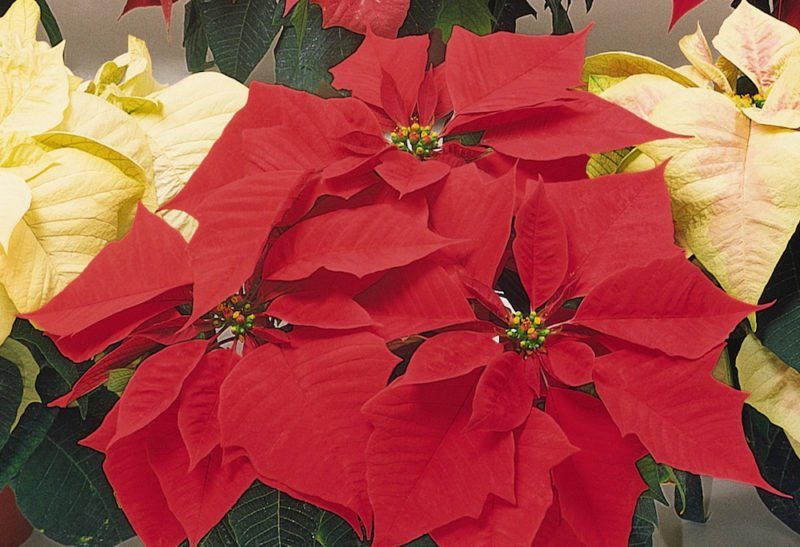
Extension Hopes to Dispel Poinsettia Toxicity Myth
A century ago, poinsettia was added to Santa’s “naughty” list, but the plant’s reputation for being poisonous is unfortunate, says University of Missouri Extension horticulturist David Trinklein. Its bracts and leaves pose no danger to people and pets, other than possible allergic reactions.
Trinklein writes that the myth that poinsettia is toxic can be traced back to a 1919 incident in Hawaii involving the death of a 2-year-old child, presumably after eating poinsettia leaves. Later, it was revealed that the child died from other causes and poinsettia was not involved. However, the damage to poinsettia’s reputation was done and word of its toxicity spread quickly.
In a 1971 study funded by the Society of American Florists, scientists at Ohio State University fed lab rats “extraordinarily high doses of various portions of the poinsettia.” A human would have to devour several pounds of poinsettia to get an equivalent dose. Yet the rats appeared to be fine. Scientists observed “no mortality, no symptoms of toxicity nor any changes in dietary intake or general behavior pattern.”
In the 1990s, researchers at Carnegie Mellon University in Pittsburgh analyzed almost 23,000 cases of poinsettia ingestion reported by poison control centers. More than 92% of patients showed no ill effects at all, and no one died or became critically ill.
However, Trinklein notes that poinsettia’s sap, which has several proteins in common with natural latex rubber, can cause allergic skin reactions. Therefore, the plants should be kept out of the reach of children.


 Video Library
Video Library 




















